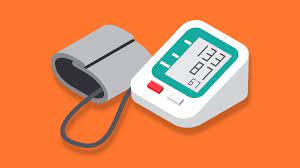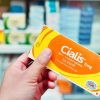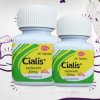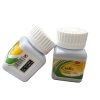- Empty cart.
- Continue Shopping
High Blood Pressure and Erectile Dysfunction Treatments

High blood pressure, or hypertension, and erectile dysfunction (ED) are two interconnected health conditions that often coexist in men. Understanding their relationship and exploring the treatment options for both conditions can significantly improve quality of life.
* The Link Between Hypertension and ED
Over time, elevated blood pressure damages blood vessels, reducing their elasticity and capacity to function correctly. This vascular damage can extend to the arteries in the penis, impairing blood flow and making it difficult to achieve or maintain an erection, thus leading to erectile dysfunction.
Moreover, hypertension can lead to endothelial dysfunction, a condition where the endothelium (the inner lining of blood vessels) doesn’t work correctly, further exacerbating ED. Additionally, medications used to treat hypertension can sometimes cause or worsen erectile problems. Diuretics and beta-blockers are known for their potential side effects related to ED.
* Treatments for Erectile Dysfunction in the Context of Hypertension
Lifestyle Changes: Addressing lifestyle factors is a foundational treatment approach for both hypertension and ED. Recommendations include:
Diet: Adopting a heart-healthy diet such as the DASH (Dietary Approaches to Stop Hypertension) diet, which emphasizes fruits, vegetables, whole grains, and low-fat dairy products.
Exercise: Regular physical activity helps lower blood pressure and improve vascular health, which can enhance erectile function.
Weight Management: Maintaining a healthy weight can reduce the strain on the heart and improve erectile function.
Smoking Cessation and Alcohol Moderation: Smoking and excessive alcohol consumption can exacerbate both hypertension and ED.
* Medications: Several medications can treat ED effectively, even in men with hypertension:
Phosphodiesterase Type 5 Inhibitors (PDE5 inhibitors): Medications like sildenafil (Viagra), tadalafil (Cialis), and vardenafil (Levitra) are commonly prescribed for ED. They work by enhancing the effects of nitric oxide, a natural chemical that relaxes muscles in the penis, increasing blood flow and facilitating an erection in response to sexual stimulation. However, men taking nitrates for chest pain should avoid PDE5 inhibitors due to the risk of a severe drop in blood pressure.
Alpha-Blockers: These medications, such as tamsulosin, can help treat both high blood pressure and ED by relaxing blood vessels and muscles in the prostate and bladder neck.
* Alternative Treatments:
Vacuum Erection Devices (VEDs): These mechanical pumps create a vacuum around the penis, drawing blood into it and causing an erection. A constriction ring is then applied to maintain the erection.
Penile Injections: Medications such as alprostadil can be injected directly into the penis to induce an erection by dilating blood vessels.
Urethral Suppositories: Alprostadil can also be administered as a tiny pellet inserted into the urethra.
Surgical Treatments:
Penile Implants: These devices, surgically inserted into the penis, can provide a permanent solution to ED. There are inflatable and malleable (bendable) implants available.
Vascular Surgery: In rare cases, surgery can repair blocked arteries that cause ED. This is usually reserved for men with specific anatomical problems.
* Addressing Medication-Induced ED
If hypertension medication is causing ED, a healthcare provider might adjust the treatment regimen:
Adjusting Dosage: Reducing the dose of the problematic medication under medical supervision can sometimes alleviate ED symptoms.
* Psychological Support and Counseling
ED can have psychological consequences, including stress, anxiety, and depression, which can, in turn, exacerbate the condition. Psychological counseling or therapy can be an effective part of treatment, especially when combined with medical interventions. Cognitive-behavioral therapy (CBT) and sex therapy can help address the mental and emotional aspects of ED.
* Integrative and Complementary Therapies
Some men find relief from ED symptoms through integrative approaches such as acupuncture, although scientific evidence supporting their efficacy is limited. Supplements like L-arginine, ginseng, and yohimbe have been explored for ED treatment, but their safety and effectiveness vary, and they should only be used under a doctor’s supervision.




